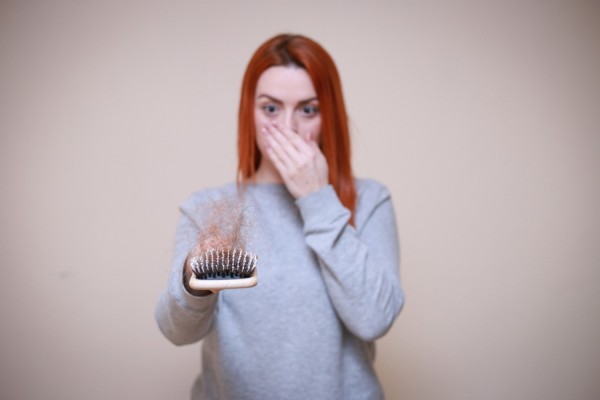5 Reasons Why Your Hair Is Falling Out

According to experts hair loss may occur in various ways according to its cause. It can happen abruptly or slowly and impact the scalp or even the whole body.
Do you ever wonder why your hair is falling out? You're probably wondering what's causing the shedding and how on earth you'd stop the occurrence.
First, don't fret because hair shedding is a part of people's daily life. You may be seeing your shower drain all clogged up with water.
Or perhaps, you'll discover the need to vacuum every two days before your carpet transforms into a hairy piece of cloth. However, both scenarios are, in fact, completely normal!
Study shows that on average, an individual loses roughly 80 strands of hair every day. But if you start shedding considerably more than that, or you find out that not a single strand is growing back, that's when you probably start to find out not just the causes, but the ways to prevent your hair from falling, as well.
ALSO READ: Here Are Six Long-Term Side Effects After Recovery from COVID-19 You Should Know
5 Common Hair Loss Triggers
Experts say hair loss may occur in various ways according to its cause. It can happen abruptly or slowly and impact the scalp or even the whole body. Below are 5 possible reasons why you're experiencing hair loss:
1. Hormonal Imbalance
This condition can result in a swarm of irritating health and beauty problems-from acne to weight gain. Indeed, hormones play a vital role when it comes to hair growth cycle regulation.
Female hormones, also known as 'Oestrogens,' are considered hair-friendly, according to experts. They help maintain the strands of hair in their growth state for the best length of time.
Male hormones or androgens, on the other hand, are said to be "unfriendly" to hair and can shorten the cycle of hair growth. Meaning, excessive androgens can lead to hair loss.
DON'T MISS THIS: Statins: How Safe and Effective Are These Cholesterol-Lowering Drugs?
2. Anemia or Iron Deficiency
Iron deficiency is one of the most common triggers of hair loss among women. According to the study, iron is very vital for the production of "hair cell protein" that without it, strands are sure to suffer.
3. Age
If you are experiencing, or about to experience menopause, some changes in your body may have an impact on your hair, as well.
Indeed, hair becomes more predominant, "leading up to and post-menopause." Having gathered this, it is essential to realize for women that your hair ages.
More so, as you age, naturally, your hair gets finer. Science explains hair loss is an entirely normal part "of the aging process.
4. Stress
It's never a misconception that too much stress can literally make a person's hair fall out. How? By raising the male hormone levels, which, in turn, can result in hair loss.
Aside from that, stress may activate scalp problems as well, like dandruff for one. It also disrupts eating habits and negatively affects the digestive system, and all of these have an adverse effect on hair.
5. Weight Loss
Experts claim that a steep decline in weight can affect a person's stress. From six to 12 weeks, following a dramatic weight loss, be it intentional or not, hair "is commonly coming out in excess."
And, while hair is tremendously essential every individual psychologically, it is physiologically non-essential.
Meaning, you can survive without hair, minus the damage or impairment to physical health. It also means that any deficiency in nutrition frequently first appears in the hair.
You can solve your hair loss issue by regularly taking a supplement like a vitamin C, vitamin B12, Iron, Zinc or Selenium, to name some.
Hair loss experts also recommend the intake of a lot of protein, especially during breakfast and lunch. Not a lot of people know that our hair is made of protein. So, you can replace the protein you are losing, also with protein!
IN CASE YOU MISSED THIS: 5 Best Foods to Boost Serotonin and Enhance Mood
Jul 28, 2020 08:00 PM EDT





